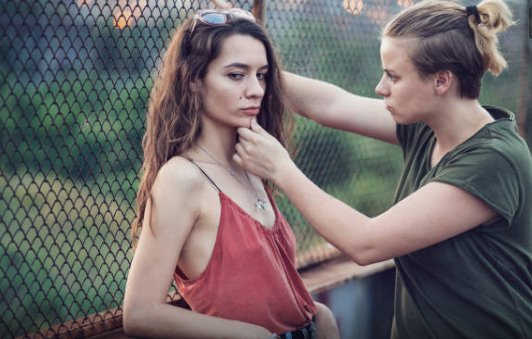
Trigger warning for discussions on sexual violence, Harvey Weinstein, and erasure of queer, GNC, and/or trans survivors in mainstream discussions. Please proceed at your own risk.
If you have been on social media at all in the past week, you know that sexual violence has taken center stage across various platforms. In the wake of the news breaking of Harvey Weinstein’s role in preying on actresses throughout Hollywood, a much-needed conversation on how normalized sexual violence is in our society has risen. Facebook has been filled with #MeToo posts—statuses created by survivors of sexual harassment, assault, or violence of any kind to show the visual impact of sexual violence in our culture.
But in trying to be inclusive and raise awareness, much of the conversation surrounding #MeToo has had the adverse effect. In fact, many of the #MeToo posts center the experiences of cis, white, mostly heterosexual and able-bodied women. Their experiences are valid and deserve space, but what does it say when only allow certain groups of people to share their stories or feel safe as “survivors”?
Though statistics report that “1 out of 6 American women has been the victim of an attempted or completed rape in her lifetime”, this still underestimates the significance of sexual violence in our lives. Most survivors never report their rape or assault, for many factors ranging from fear of not being believed to simply not wanting to be re-victimized by police, medical professionals, and throughout the process of trying to bring the issue to court. There’s incredible pressure placed on survivors to be as close to the idea of a “perfect victim” as possible—survivors who drank the night of their assaults; survivors who knew their perpetrators or had even had previous consensual encounters with them; survivors who were, in any way, “imperfect” or showed their humanity, risk having that used against them if they choose to speak out about the violence they experienced.
But the most harmful expectation placed on survivors is the pressure of not being queer. The shame that hangs for many queer survivors correlates to the unfair stereotype if the perpetrator is the same gender of them, then that will somehow “make” them queer—and that simply isn’t true. But because this stereotype is still laced so closely to how we talk about and process sexual violence, queer survivors are far less likely to seek help, report their assaults, or get the support that they need.
The biggest cause for concern with the #MeToo posts is the erasure of validity to the sexual violence that survivors who are not cis women face. People who are trans and/or gender non-conforming or women who are masculine presenting also face sexual violence, but are grossly under-supported and left out of resources and conversations meant to center and uplift survivors because of their gender or the gender of their perpetuators. Many attempts of bringing this up through #MeToo posts were met with accusations of derailing, diminishing, or disregarding the need for cis female survivors to share their stories.
Let me be clear: cis women are not the only ones that experience sexual violence. We can have a conversation about the ways that misogyny and gender oppression impact us in different ways without it taking away from the validity of these experiences. By suggesting that cis women are not the only ones that experience sexual violence, the result is not to recenter the conversation on masculinity or for allowing perpetrators who are cis men to dodge accountability for their actions. Instead, the goal is to give survivors of all genders—especially those who have been the most marginalized and left out—room to know that they matter, too.
It’s important that we talk about how sexual violence impacts us, but is it right to do so at the expense of leaving survivors behind? No. Queer survivors, survivors who are trans and/or gender non-confonforming, survivors whose perpetrators were the same gender as them or whose perpetrators were not cis men are not any less important than survivors whose stories fit our idea of the “perfect victim”.
So how do we move forward? We continue making space and centering the stories that are the most important to tell when speaking out about sexual violence—the stories of survivors. But no survivor is obligated to tell you their story or participate in public processing of their trauma just because it is time sensitive or the topic at the time. The best thing that we can do—all of us—is to make space for survivors from all walks of life to feel safe, to know that they matter, and to have access to the resources and help that they need to feel their best.
Sexual violence continues to have such a pertinent role in our lives because there is no separating it from our misogynist society. But we can begin to do the work of breaking away from being unconscious bystanders and standing up to say, no more.

What Do You Think?